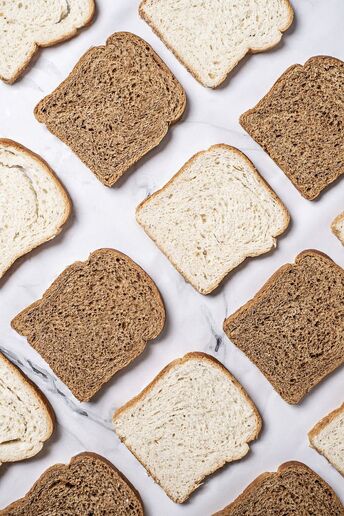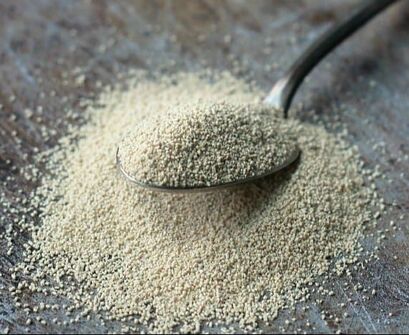
Yeasts and few other microorganisms use alcoholic fermentation to release energy from food molecules. This is an anaerobic process. When yeast runs out of oxygen, it begins to ferment. During this process, it gives off bubbles of carbon dioxide and alcohol as byproducts. (When yeast is mixed with flour to make bread dough, these bubbles cause bread to rise, as well as the spaces you see in the bread. The small amount of alcohol evaporates during baking.) In this activity, students will create the conditions necessary for yeast to ferment and give of carbon dioxide. Bromothymol blue, an indicator for carbon dioxide, will be used to show that the yeast have released the gas. Bromothymol blue changes from blue to yellow in the presence of carbon dioxide. materials
Each lab group will need 1 package of yeast, 1 covered container large enough to fit yeast and a small medicine dispenser cup, 1 packet/tsp sugar, 1 small medicine dispenser cup, water, 1 pipette, 5 ml bromothymol blue, and a stirring utensil.
CHECK OUT MY TIKTOK VIDEO DEMONSTRATION BELOW, AND THEN READ ON FOR MORE DETAILS!
Procedure:
Once the yeast have risen and the bromothymol has changed from blue to yellow, discuss the fermentation process with students.
For example, sugar and flour are both carbohydrates. Why was sugar, rather than flour, added to the yeast? Why was it necessary to put the container in a warm place? What was the indicator color change proof of? If the indicator didn't change color, what might be the reason? Also important for student understanding, talk about the difference between aerobic and anaerobic processes. This is also a good opportunity to review lactic acid fermentation. This lab is called Fermentation in Yeast and it is found in 40 Biology Lab Activities.
0 Comments
|
AuthorGertrude Katz has spent over 30 years teaching K-12 public school students all major subjects. She has taught biology and education at the college level. The majority of her career has been spent instructing biology at the secondary level. Categories
All
|
 RSS Feed
RSS Feed